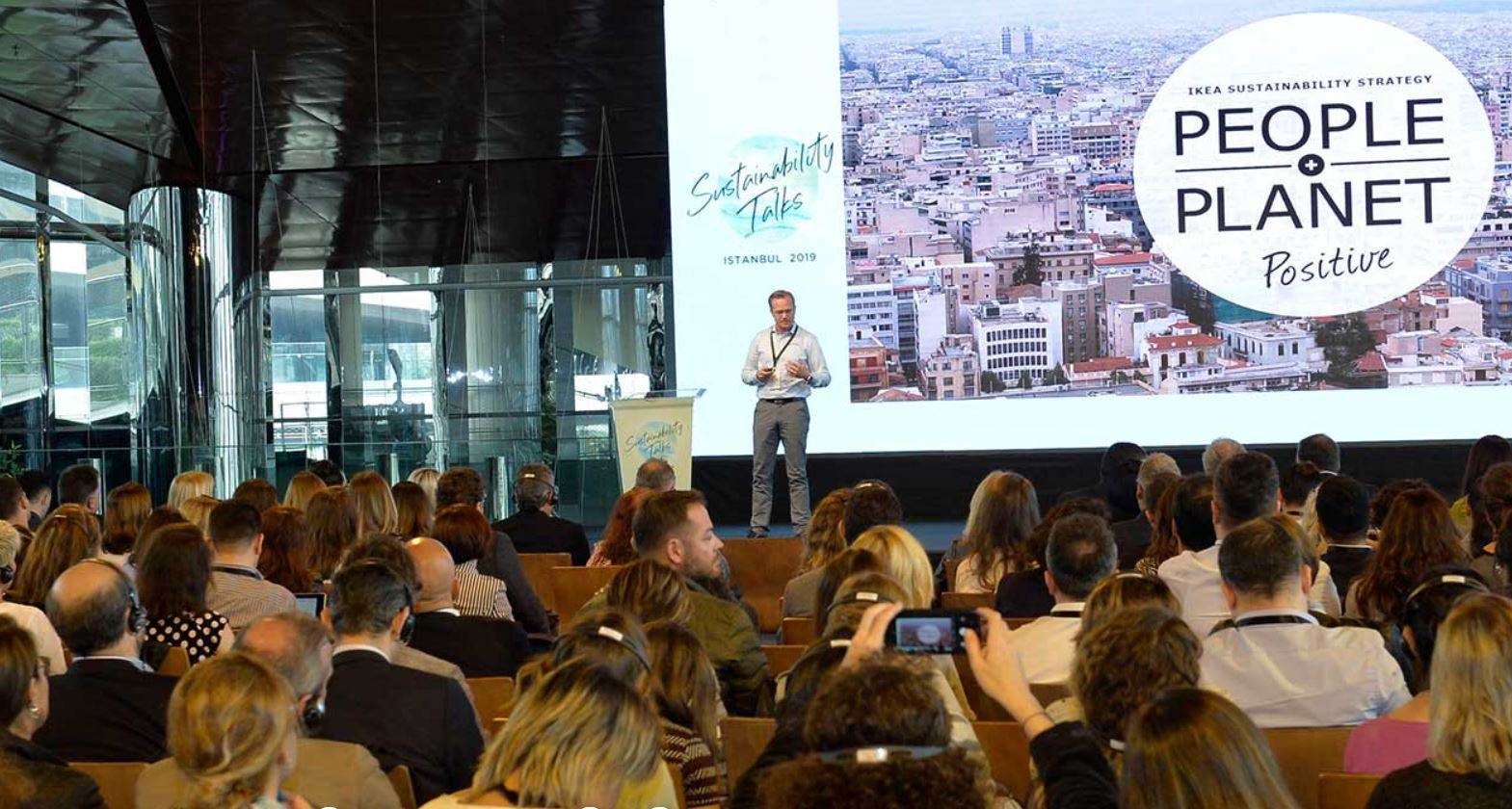Top textiles experts offer sustainability guidance at Istanbul conference

Speakers included Nicolas Prophte, vice-president of sourcing, production and innovation in denim for Tommy Hilfiger; Andrew Olah, founder of Kingpins; Burak Karaarslan from Turkish mill Taypa; Romain Narcy from the Ereks - Blue Matters mill and laundry; and Eda Togan from Superdry.
Liesl Truscott from the Textile Exchange explained how the non-profit is in the second year of a benchmarking pilot which will be rolled out across the industry. She described a desire for a “race to the top”. “We don’t just need brands and retailers, we need everybody on board,” she said. “The power lies in the production end of the supply chain. Benchmarking plays important role of tracking process. We need to measure everything, so can we learn and improve together."
Johannes Stefan, head of Lenzing’s textiles business in Europe, discussed the gap between what consumers intend to do and what they actually do: they wish to choose sustainable apparel, but sometimes they go with the cheapest option. He said Lenzing considers how it can build awareness, increase accessibility to sustainable products and foster attachment to products and brands. He added that Lenzing saved a record amount of waste this year with recycled option Refibra, and it is training staff in retail outlets on the benefits of its products.
For Yawer Ali Shah from AMA Herbal, natural dyes aren’t “considered as much they should be, when you want to achieve sustainability”. He explained how his company is able to extract dyes from waste, such as shells of pomegranates. The ‘wild collections’ involve natural flowers and fruits, the collection of which creates employment people in rural areas of India. AMA’s biggest seller is natural indigo, which it classes as climate positive. “The making of 1kg of natural indigo employs two people for one day. This is one of wonderful things when you use natural dyes.”
Özgür Atsan, from US-based yarn maker Unifi, spoke of the ability to trace its Repreve recycled fibre by injecting an agent into the raw material. “Traceability is as important as sustainability,” he said. He added that as well as making fabrics, Repreve chips - made from recycled plastic bottles - can be used to make zips and buckles, which some brands are now selecting. “We need to explain to the end consumer that we’re serious. It’s not a trend, if done efficiently [using waste plastic], it could have a huge impact on the environment."
Axel Lukasch from chemicals group Huntsman said the quest to reduce CO2 and water, and reduce effluent, are among its big focuses. Its Avitera range reduces garment waste as the colour is durable, has high fastness and is certified by the major certifications including ZDHC. “I hope our competitors come up with similar products, because its what we need to save water in the industry,” he added.
The final speakers included a panel on textiles machinery, featuring Saentis, Karl Mayer, Tonello, LaRoche and Itema, which we will report on tomorrow.
Image: From the 2019 Sustainability Talks Istanbul. The 2020 talk was cancelled due to the pandemic.










